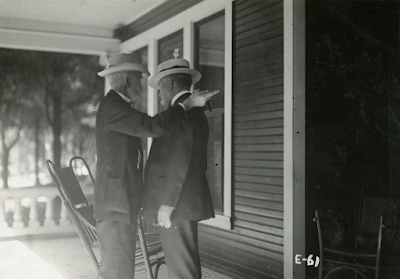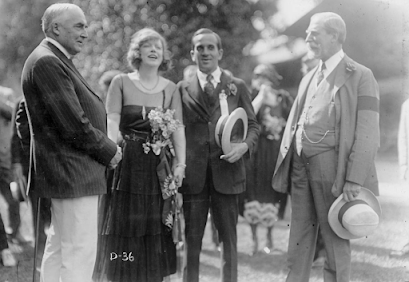Thousands of people in Marion celebrate Labor Day, which is marked in the morning by a parade downtown and a speaking program at Lincoln Park. Senator Harding is one of the speakers. According to the New York Times, "Eight thousand persons were grouped around the speakers' stand in a small grove when the Senator arrived. A strong wind prevented his voice from carrying to the edges of the crowd, but the people moved around to the leeward side, and the Senator held the attention of the picnickers throughout his speech":
Ladies and Gentlemen, My Countrymen All: — Life is Labor, or labor is life, whichever is preferred. Men speak of the labor issue as paramount or imperious or critical — it is always the big thing, because it is the process of all progress and attainment, and has been since the world began. The advocate of excessively-reduced periods of labor simply proposes to slow down human attainment, because labor is the agency of all attainment. If by some miracle of agreement we could reduce the hours of labor to four per day — I speak of labor now in the sense of that which is employed for pay — the live, progressive, civilization-creating, progressive labor would have to go on working twice or thrice that time, because labor is the ferment of human development. No one will challenge these general truths, but we do have a conflict of opinion as to how labor shall be employed and the measure of its compensation.
It is impossible for me to ignore the fact that I am the candidate of a great party for a place of high responsibility, but I choose to make such utterances as are in my mind on this always-significant holiday, because I preferred to talk before my fellow-townsmen with whom I have worked so many years.
Marion first observed Labor Day seventeen years ago, and Harding was one of the speakers that day.
Sources:
- "All Marion Shows Loyalty to Labor." Marion Star. 7 September 1920.
- "Harding Tells Labor He Wants No Class Rule." New York Times. 7 September 1920.
- "Marion and Labor Day." Marion Star. 4 September 1920.





















































